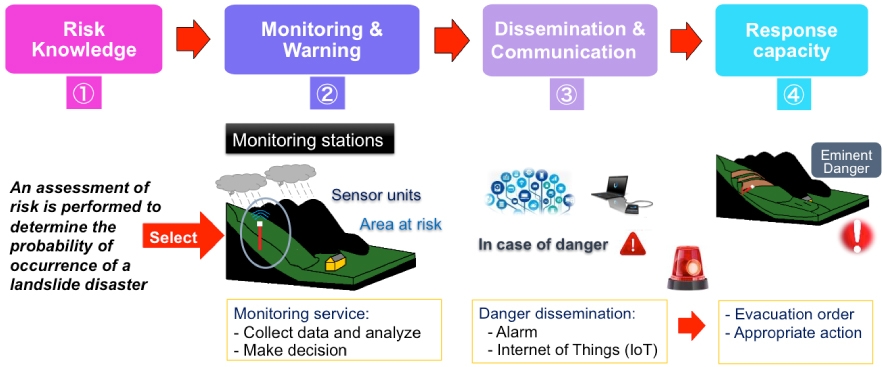Students will learn about the earth’s resources, disasters caused by changes in the global
environment, and the impact of life on the environment through the prism of
earth and planetary sciences, social/safety system science, and biology.
What you’ll consider in this area

Numerous major disasters have occurred across the globe in recent years, including massive forest fires in South America’s Amazon rainforest and in southeastern Australia, as well as the frequent disasters caused by torrential rain in Japan. Such disasters are a problem not only for the areas affected, but also for the whole of humankind, as they threaten the global environment itself. What we must also not forget is that such major disasters are not simply natural disasters, but are actually closely related to the burden imposed on the environment by human actions. Consideration of the kind of sustainable interactive relationship that humans should have with the global environment, taking into account the distinctive features of each region and their historical background, is a pressing issue for the whole of humanity, now more than ever.
Given this situation, in the Earth and Environment area, you will first learn interdisciplinary knowledge and thinking that spans existing disciplines, including natural science, the humanities, and social sciences. You will then explore the ideal situation relating to humans and the global environment and consider the critical issue of how to solve environmental problems and specific measures for doing so.
What you can learn in this area
As most of today’s environmental problems stem from human activity, solving those problems will require not only research in the field of natural science, but also a multifaceted perspective on those problems that encompasses the relationship between humans and the global environment. In the Earth and Environment area, diverse lectures and practicals are provided by faculty members specializing in four main disciplines: (1) earth and planetary sciences; (2) biology; (3) social systems science; and (4) safety systems science. Students are offered the chance not only to gain a deeper knowledge of the discipline in which they are interested, but also to study basic knowledge and theory in the wide range of disciplines required to solve these problems.

Focus on fieldwork:
From the Ito Campus
to the Antarctic
Another thing to which importance is attached in studies in the Earth and Environment area is a hands-on approach in the field, paying meticulous attention to the subject being studied. For the Earth and Environment area, we have assembled a team of faculty members who carry out fieldwork quite literally all over the world, from the Ito Campus to the Antarctic. We want students to go out into the field and observe subjects for themselves, in order to foster the powers of observation, imagination, and insight required to identify the problems that lie within complex phenomena, and cultivate the data collection and analysis skills needed to expose problems.


